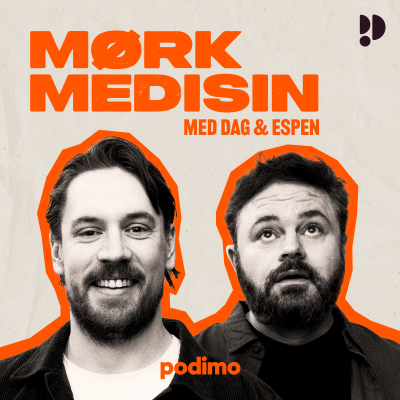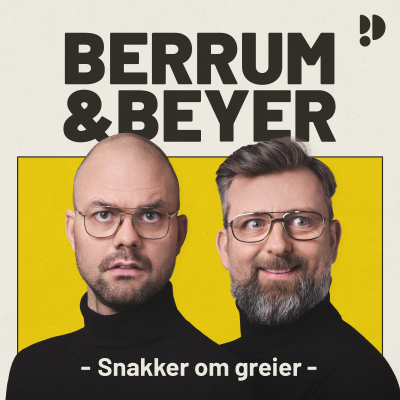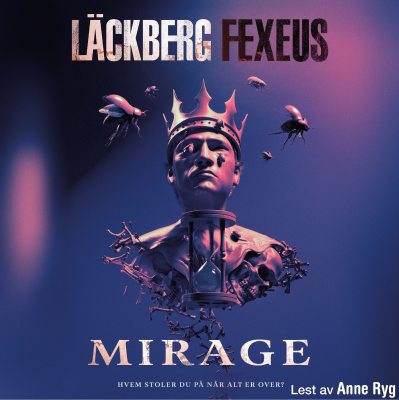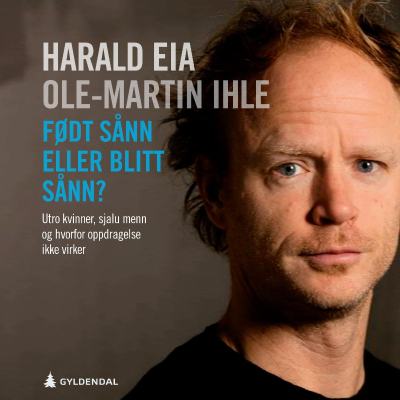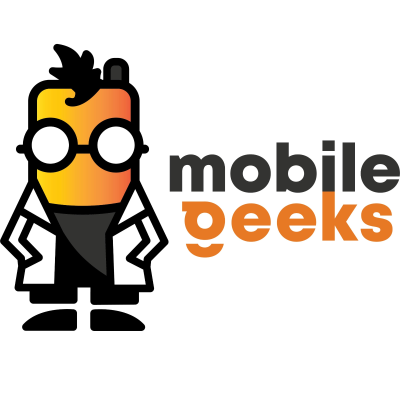
Mobile Geeks Fernweh
Podkast av Mobile Geeks
Prøv gratis i 14 dager
99 kr / Måned etter prøveperioden.Avslutt når som helst.
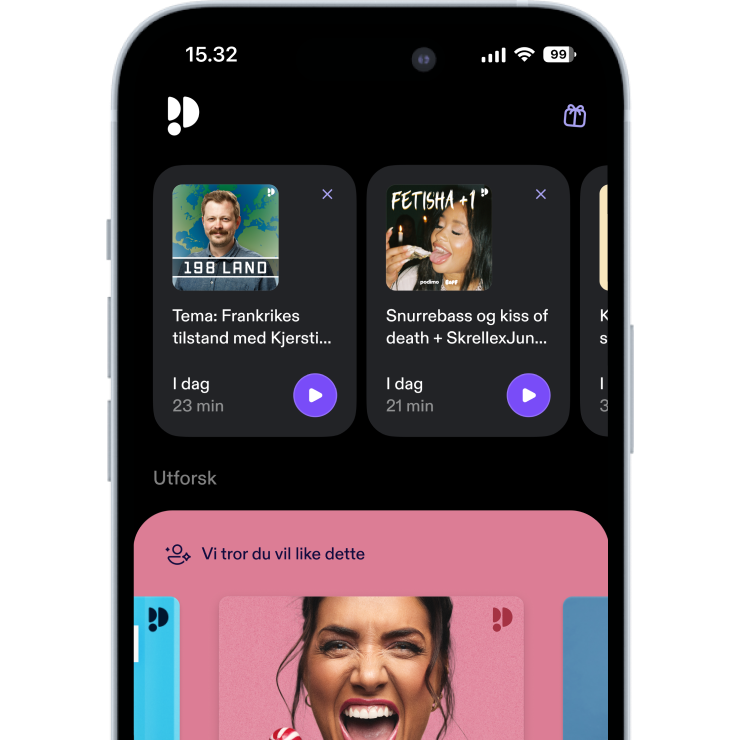
Mer enn 1 million lyttere
Du vil elske Podimo, og du er ikke alene
Rated 4.7 in the App Store
Les mer Mobile Geeks Fernweh
Die Technik von Übermorgen - schon heute
Alle episoder
7 Episoder[https://www.mobilegeeks.de/wp-content/uploads/2020/08/news-transport-dec17-continentyinter-1024x683.jpg][https://www.mobilegeeks.de/wp-content/uploads/2020/08/news-transport-dec17-continentyinter.jpg] Qualcomm hat kürzlich ein Forschungs- und Testprogramm zur autonomen Fahrzeugkommunikation auf einer 3 Meilen langen Straße in San Diego gestartet. Ziel des Programms ist die Demonstration des Potenzials zur Verbesserung der Sicherheit und Verkehrseffizienz im Vergleich zu zellularen Fahrzeugen für die gesamte Kommunikation oder C-V2X. Jim Misener ist Projektleiter und Ansprechpartner bei Qualcomm für alles, was mit V2X zu tun hat. Don und ich teilten uns daher auf, um einen Anruf mit ihm zu führen, um mehr über das Projekt zu erfahren und zu erfahren, wo Qualcomm bei der Fahrzeug-zu-Fahrzeug-Kommunikation steht, da die Standards noch im Entstehen begriffen sind.
[https://www.mobilegeeks.de/wp-content/uploads/2020/06/Daimler-and-nvidia.jpg][https://www.mobilegeeks.de/wp-content/uploads/2020/06/Daimler-and-nvidia.jpg] It is perhaps the most important news in the auto industry of the year. Daimler and Nvidia form a close partnership. Why this is so important and what it means for the entire industry. It is a surprising and far-reaching partnership that Daimler and Nvidia announced last night. In the future, Daimler will rely on hardware software from Nvidia to drive both the entertainment system and autonomous driving of Stage 4. The US company will provide its Nvidia Drive platform as the basis for a central computer for the future, uniform operating system from Daimler. This central computer unit then controls all the important functions of the vehicle, i.e. both autonomous driving and the entertainment system. The over-the-air updates that will then be possible also run on this platform. At the same time, Daimler announced that cooperation with BMW and Bosch in the area of software development for autonomous driving will be paused. For Daimler, this means that all available forces will be concentrated on Nvidia. You won’t completely do without your own software development, but it can be assumed that the majority of the development will come from Nvidia. They have also announced that they will provide a “lifetime update guarantee” for the vehicles that will be equipped with the new platform. Given that a car can be between 12 and 20 years old, that’s a pretty far-reaching statement. This decision has major consequences for Daimler. On the one hand, one admits that the race for the software can only be won if you are looking for a strong partner outside the automotive industry. The attempt to develop everything more or less yourself, or with existing partners, has failed. It also means that you commit to a single partner for a very long time. If Nvidia has problems developing Level 4 autonomy, there is no alternative. Nevertheless, Daimler’s step is the right one. Nvidia is not a newcomer to the industry. Central computers for cars have been developed for many years. The current Nvidia Drive platform is the third generation. The most important argument from Nvidia for Daimler will be that the Americans deliver everything from a single source. Nvidia makes its own chips that are among the best you can find on the market. The computing power of the GPUs surpasses almost the entire competition. In addition, Nvidia develops its own software based on this hardware. A big advantage for the manufacturer. It has been a trend in recent years that manufacturers from different industries rely on their own hardware. Tesla has been doing this for years (after working with Nvidia for a long time), but other companies are also active in this area. Samsung and Huawei are just two examples. Apple has also been building its own CPUs for more than ten years, which will soon also be used in MacBooks. The advantage of this approach is obvious. One can already determine with the software developers during the development of the hardware. how the requirements are made. Instead of constantly having to adapt the software to hardware that you can hardly influence the further development of. This affects the entire system. It can work more efficiently, consume less electricity and be powerful where you really need it. The development cycles are also shortened. Updates and completely new features can be made available more quickly. The advantage of purchasing the overall architecture from Nvidia also means for Daimler that you will be taking a big step in digitization. If you can meet the target date in 2024, you will be ahead of all other manufacturers worldwide, with the exception of Tesla. You have a central operating system that runs on a central platform designed by the same partner. You have over-the-air updates for all areas of the vehicle and thus also for the after-sales market in the entertainment system. And from 2024 onwards, it will be able to offer various forms of autonomous driving where these are permitted. Neither BMW nor Audi will be able to offer that. Auch für Nvidia bedeutet die Partnerschaft viel. Mit der Daimler AG hat man zum ersten Mal in der Geschichte des Unternehmens einen Partner außerhalb der Tech-Szene gefunden. Mit immerhin rund zwei Millionen produzierten Fahrzeuge pro Jahr, gehört Daimler zu den größeren Anbietern. Anmerken sollte man auch, dass die Partnerschaft zwischen beiden Unternehmen nicht exklusiv ist. Nvidia hat also die Möglichkeit zumindest seine Plattform Nvidia Drive auch an andere Hersteller zu verkaufen. Auch wenn die Softwareentwicklung, die man mit Daimler erledigt, natürlich exklusiv bleibt, öffnet der gestern angekündigte Deal für Nvidia völlig neue Möglichkeiten. The deal is an absolute game changer for the automotive industry. With Nvidia, Daimler has grabbed one of the best available partners on the market. Even if the decision to put all cards on Nvidia is not without risks, it offers a long-term perspective for both sides. The other manufacturers will have a hard time countering this. This is just the tip of the iceberg that the automotive industry should take note of. Nicole Scott and Don Dalhmann unpack the announcement and look at what this means for the future of the automotive industry.
[https://www.mobilegeeks.de/wp-content/uploads/2020/03/5e7143bac485402d8c7b5e02-1024x682.jpg][https://www.mobilegeeks.de/wp-content/uploads/2020/03/5e7143bac485402d8c7b5e02.jpg] Die Auswirkungen der Corona Krise auf die Automobil- und Mobilitywirtschaft sind erheblich. Sie könnte für massive Verschiebungen auf dem Markt sorgen. Es ist nicht so, dass es den Autoherstellern gerade besonders gut geht. Die Umstellung auf die E-Mobilität, der Dieselskandal und die Digitalisierung haben die Unternehmen seit einigen Jahren unter Druck gesetzt. Zwar wiesen für das Geschäftsjahr noch alle deutschen Hersteller einen Gewinn aus, aber der war deutlich schmaler, als in den letzten Jahren. Nachdem die Produktion und der Verkauf in China in den Monaten Januar und Februar eingestellt war, folgt nun Europa. Bei allen Herstellern stehen die Bänder still, Autohäuser haben geschlossen. Die Verluste, die nun entstehen, werden schwer zu verkraften sein. Zumal es im Moment auch so aussieht, als würde die Krise in Europa länger andauern. Die Produktionsausfälle sind Immens. Pro Jahr werden alleine in Deutschland 4.7 Millionen Fahrzeuge produziert. Pro Monat sind das rund 390.000 Fahrzeuge. Viele davon sind zwar schon geordert und können jetzt nicht ausgeliefert und damit voll bezahlt werden. Da die OEMs nicht mehr produzieren, steht auch die Produktion bei den Zulieferer still. Zwar können einige Bauteile auf Halde produziert werden, aber die Just-In-Time Lieferketten sind nicht darauf ausgerichtet, große Menge an Bauteilen zwischenzulagern. Insgesamt sind vom Stillstand 14 Millionen Arbeitsplätze in Europa betroffen und vor allem die kleinen Zulieferer werden schnell in finanzielle Probleme kommen. Einen kleinen Lichtblick gibt es allerdings für die Hersteller: China. Dort, wo die Krise ihren Ursprung hat, scheint man die Sache so langsam in den Griff zu bekommen. Die Stadt Wuhan steht zwar weiter komplett unter Quarantäne, aber im restlichen Land läuft die Industrieproduktion wieder an. Da die deutschen Hersteller zwischen 30 und 40 Prozent ihrer Umsätze in China erwirtschaften, ist das ein Silberstreif am Horizont. Wenn die Lage für die Automobilhersteller schon extrem schwierig ist, so ist sie für fast alle Mobilityanbieter geradezu verzweifelt. Vor allem die Anbieter von E-Scootern stehen vor großen Problemen. In Europa haben viele Staaten und Städte strenge Ausgangsbeschränkungen erlassen, dazu kommt, dass viele Menschen im Homeoffice arbeiten. Einige Anbieter haben daher ihre Roller schon von der Straße genommen. Das Problem der meisten Startups liegt in deren knappen Finanzierung. Bisher leben die Unternehme von den Finanzierungen und die operativen Kosten sind höher, als die Einnahmen. Die Zeit für weitere Finanzierungen ist denkbar schlecht. Daher ist davon auszugehen, dass am Ende der Krise einige Anbieter schließen müssen. Nicht viel, aber immerhin etwas besser sieht es bei den Ride- und Carsharing-Anbieter aus. Deren Geschäft liegt zwar auch am Boden, aber nicht so stark, wie bei anderen. Uber hat in den USA einen Rückgang von knapp 30 Prozent bei den Buchungen verzeichnet, allerdings stammen die Zahlen noch aus der letzten Woche. Ähnlich sieht es beim Carsharing aus, wo die Buchungen ebenfalls eingebrochen sind. Allerdings sind die großen Anbieter entweder mit genügend eigenen Bargeldreserven ausgestattet (Uber, Lyft) oder sie hängen am Tropf der Hersteller (ShareNow). Immerhin gibt es einen Bereich, der gerade wächst. Anbieter von Leihfahrrädern erleben einen Boom. Das liegt zum einem an den langsam steigenden Temperaturen, zum anderen aber auch daran, dass viele Pendler nun auf den ÖPNV verzichten. Es ist also nicht alles ganz schlecht.
[https://www.mobilegeeks.de/wp-content/uploads/2020/01/Sony-Car-1024x576.jpg][https://www.mobilegeeks.de/wp-content/uploads/2020/01/Sony-Car.jpg] Als Sony den Vision S auf der CES vorstellte, brachte uns das zum Nachdenken über das Potenzial der Tier-1-Automobilhersteller. Da die Autoverkäufe zurückgehen und sich die Automobilindustrie für neue Industriezweige öffnet, wird deutlich, dass Tier 1 ein großes Potenzial haben. Don und Nicole erörtern, welche Industrien ihrer Meinung nach mit Tier 1 zusammenarbeiten könnten, um Autos auf den Markt zu bringen.
[https://www.mobilegeeks.de/wp-content/uploads/2020/03/Bosch-Mobility-Solutions.jpg][https://www.mobilegeeks.de/wp-content/uploads/2020/03/Bosch-Mobility-Solutions.jpg] Bosch kündigte einen Plan für die Zukunft des Automobils an, dessen grüne Lösungen von Verbrennungsmotoren und Diesel begleitet werden. Don und Nicole setzten sich mit Dr. Stefan Hartung, CEO von Bosch Mobility und Mitglied der Geschäftsführung zusammen, um zu erfahren, wie diese Strategie nach Ansicht von Bosch der schnellste Weg zur Klimaneutralität sein könnte.

Rated 4.7 in the App Store
Prøv gratis i 14 dager
99 kr / Måned etter prøveperioden.Avslutt når som helst.
Eksklusive podkaster
Uten reklame
Gratis podkaster
Lydbøker
20 timer i måneden



